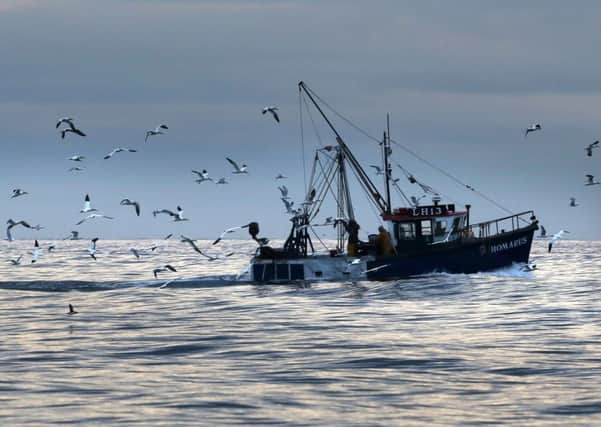Discard ban extended


The discard ban will mean fishermen have to land their whole catch of stocks such as haddock and prawns.
It has been in place for fish such as mackerel and herring since January 1, 2015.
Advertisement
Hide AdAdvertisement
Hide AdThe Scottish Government has been working with the fishing industry to raise awareness of the new species covered by the ban in 2016 and to provide information to fishermen through the publication of factsheets and guidance.
The Fisheries Secretary, Richard Lochhead, commented this week: “No-one wants to see perfectly edible fish being thrown back into the sea dead, least of all our fishermen.
“The discard ban is an important step towards ending this wasteful situation.
“The ban covering species such as haddock and prawns from the beginning of 2016 will be a big challenge for the industry, but the significant increase in haddock quota for next year will help them to manage the impact.”
Advertisement
Hide AdAdvertisement
Hide AdLooking to the future, he added:“These changes will also benefit the industry by helping fish stocks to grow, which should in turn lead to further increases in quota.
“With the good news from the recent EU Fisheries Council the industry are well placed to cope with these changes and, I hope and expect, for a successful 2016.”